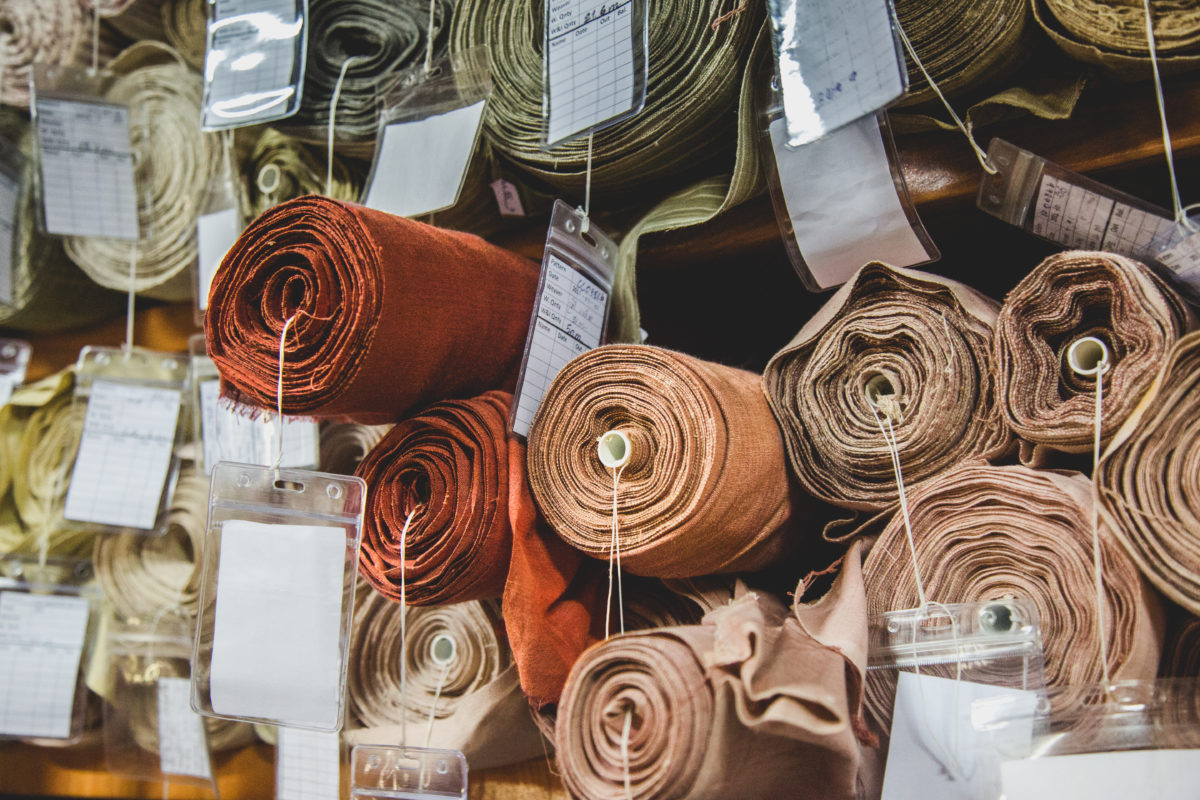The fabrics. The dyes. The processes. Can fashion go green?
The auto industry has begun to respond to the pressure of climate change with electric cars. The energy industry has begun to respond with wind and other renewable energy sources. Selected fashion designers and manufacturers have also begun to respond with sustainable practices….but more is needed.
“Fast fashion,” the ability to make clothes fast and inexpensively, has created a buying spree among consumers. After all, who doesn’t want two dozen t-shirts for the price of one dozen? When a t-shirt wears out, you can just toss it in the trash. There’s plenty more where that came from….and cheap at that!
According to the World Resources Institute, between 2000 and 2014, people bought 60% more clothing items and kept each one half the time. This may be great for business, but it’s a real problem for the environment.
Without sustainable practices, all that manufacturing depletes the environment of precious natural resources such as water. It adds toxic dyes and chemicals to waterways, and grows the industry’s carbon footprint. None of these are good things. If the trend continues, the industry will be using three times more resources to meet demand than it used in 2000.
This trend is unsustainable.
Consumers are now starting to use their purchasing power to push designers and manufacturers into adopting more sustainable approaches. Some industry leaders are already on their way. Here are some practices that can have a positive impact.
- Publishing information on your website including name of suppliers and why these particular suppliers were chosen
- Adapting sustainability practices in manufacturing including using less water intensive methods, nontoxic dyes, and biodegradable packaging
- Considering alternatives to cotton, including bamboo, linen, hemp, and sisal. (Bamboo grows quickly; hemp, linen, and sisal use less water and pesticides than cotton.)
For assistance in plotting a course toward greater sustainability, industry members may want to reach out to Brooklyn Fashion + Design Accelerator at Pratt Institute. Professionals there offer guidance and consulting services.
The Ethical Fashion Forum is the industry body for sustainable fashion and a source platform that includes a sustainability toolkit for the industry. In addition to the EFF, Fashiondex includes a list of ecological and organic suppliers. Ecoenclose and Earthpack provide biodegradable packaging, and Gaiaconceptions and Dharmatrading supply nontoxic dyes. Peta aggregates many suppliers of alternate suppliers for fur, down, silk, and wool fabrics; Eagle Fabrics supplies textiles made from bamboo, modal (from beechwood) and soy.
It is possible to go fashion green? Absolutely! The Good Trade posts information about 35 companies doing just that.

Spot on with this write-up, I actually feel this website needs far more attention. I’ll probably
be returning to read through more, thanks for
the info!
Thank you for your kind words. Please do return often and comment as you see fit. MF